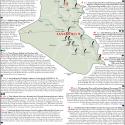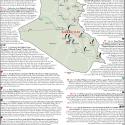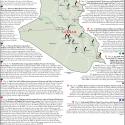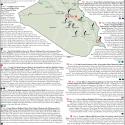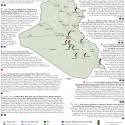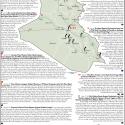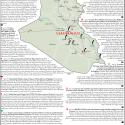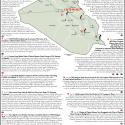Iraq Situation Report: June 3-9, 2020
Jun 12, 2020 - ISW Press
Iraq’s most important external partners, Iran and the United States, as well as Iraq’s domestic politicians, are competing to consolidate their leverage ahead of the US-Iraq Strategic Dialogue set to begin on June 11. Iran dispatched its IRGC-Quds Force Commander and energy minister to solidify a key energy deal that the United States had hoped to deter by encouraging partnerships with Gulf States. Iran’s proxies in Iraq responded by opposing the US-encouraged outreach to Saudi Arabia and attempting to form a parliamentary mechanism to demand the expulsion of US forces from the country. Meanwhile, Iraqi Prime Minister Mustafa al-Kadhimi has strengthened his domestic position by filling key vacant security roles, passing a full cabinet, and forming an alliance in Parliament to support his actions in order to navigate the competing demands on his country in the Strategic Dialogue. The pursuit of leverage by all actors indicates each expects their stance in the Strategic Dialogue negotiations to be met with resistance.


